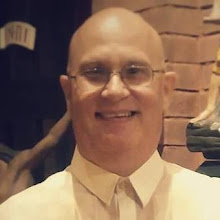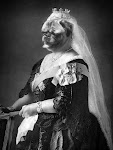I was a late arrival with the works of Hector Berlioz in comparison with other favorite composers. Although Symphonie Fantastique had its moments, his other works just failed to ignite my passion. But it was a chance to hear Harold in Italy a few years ago that revealed (aided by my advancing maturity) Berioz's brilliance. Thus I welcomed this weekend's Kansas City Symphony concert featuring Principal Violist Christine Grossman as solo in "Harold in Italy, Symphony in Four Parts with Viola Obbligato", Op. 16, The concert opened with the sunny "Italian Serenade" by Hugo Wolf and the Barber Piano Concerto with James Tocco as solo.
With an ensemble likely smaller than those on many recordings, Stern was able to bring out many of the chamber like sonorities in this complex and often busy work. Especially delicate and revealing was the quiet opening with soft (but slightly hesitant) basses building with the winds and strings to a climax, revealing the viola with the Harold theme accompanied by shimmering harp and sweet arpeggios in the woodwinds. The detail and intimacy set the tone for the rest of the work.
Grossman's tone, phrasing and ability to project over the frequently busy orchestral fabric was important in communicating the program of the work. The Harold theme was clearly heard as it wove its way through the various scenes, something not always encountered even in recordings.
The second movement Pilgrim March was equally fine, the only blemish being the sul ponitcello arpeggios that were blurred in the orchestral fabric, one of my favorite passages in the work.However, the quiet reverent ending with harp, viola and winds was superb. The Abruzzi Serenade was sweetly rustic with an always wonderful contribution by the orchestra's English horn Kenneth Lawrence. The finale, "Orgy of the Brigands and Memories of Scenes Past", brought out all of Berlioz's and Stern's stops with a vigorous but never vulgar performance.
Grossman received thunderous and well deserved accolades from her hometown crowd as did the whole ensemble for bringing this fascinating and not all that often heard work to life.
The Barber Concerto is one of the composer's masterpieces but not as often heard as the Violin Concerto. Written in 1960-1962 for John Browning (the last movement was not finished until a few days before the premiere and was pronounced unplayable until revised) the Pulitzer Prize winning work is also one of his more complex and frenetic scores. Tocco certainly had the technique, vision and maturity to keep this work from becoming solely a clangorous nightmare. Same could not always be said for the strings, who frequently faltered in intonation and struggled to keep up with the busy scoring of the outer movements. All was in fine form, however, in the central Canzone, the calm eye of this hurricane of a concerto. Tocco kept the reflective melody going without it becoming sweet and slick, delicately accompanied by the orchestra. The final movement was all of show and speed but done with clarity of texture and thrill-every-moment verve, despite the aforementioned slips.
Opening the concert was a sweetly expressive performance of a little heard bon bon, the Italian Serenade of Wolf.
The final Classical Series event of the year, the KCS turns to the annual Messiah performance and Christmas concert series. January brings two interesting concerts with Strauss' "Also Sprach Zarathustra", the Prokofiev 3rd Piano Concerto, Beethoven's "Grosse Fugue" and the wonderful Martinu 4th Symphony.
As this is likely the last entry of the year, we wish you a Happy Thanksgiving and Merry Christmas from all of us at the Palace!
Saturday, November 20, 2010
Subscribe to:
Post Comments (Atom)



No comments:
Post a Comment